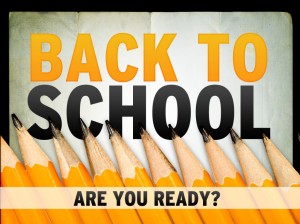 Spring has officially sprung! The first day of spring brought festivities to commemorate the change of season! Some may be finishing spring break, while others may be just beginning.
Spring has officially sprung! The first day of spring brought festivities to commemorate the change of season! Some may be finishing spring break, while others may be just beginning.
Thinking about spring break, you may be experiencing quite the opposite, which I’ll call it spring acceleration. The kids get a break from school, but your life accelerates. Your responsibilities increase during the time they’re out of school. Your normal routine, if you can call it that, has been changed. Now you’re concerned with what they’re doing while you’re at work. Depending on your child’s age, many different thoughts are running through your mind: Where are they? Who are they with? What did they eat? What are they wearing? Did I pack enough of this or that? Did they do their chores? Did I lock the door and put down the garage? The list can go on and on. Spring acceleration can be spring break for you, if you prepare!
How to prepare? Think about all the questions you have now and devise a plan to remedy them all. We’ve talked about childcare selection and activities identification in previous posts, so that’s a start. Budgeting time and finances. Check out the link below for more information and tips on spring budgeting. Now if you take a vacation while your children are on spring break, which may include travel, then your situation will be a little bit different. Scheduling, coordinating, packing, etc, etc, etc. This requires your involvement on many different levels, make sure to give yourself some time to wind down at the end of your vacation to be prepared to go back to work. If you’re staying home, be diligent about planning some activities with your child so they can be with you and get out of the house. There is hope to make it through the start of spring and all that will follow. Communicate your needs, be prepared, and follow through on your commitments. You will make it through and experience spring break!
CHALLENGE: Spend one day during spring break with your child doing something they love or something new they’ve been wanting to try. What did you learn about your child from that experience? How have your prepared yourself for spring break? How did you make it through? Share your plan and tips with all of us here!
Reference:http://us1.campaign-archive2.com/?u=385c0c43f94c55f6fa4629d4d&id=eae6d876bc
Dr. Shameika Moment, Doctor of Education in Educational Leadership
I am an educator-adjunct faculty & K-8 teacher, parent advisor, tutor, business owner, and aspiring author. I have taught students in K-12, inside the classroom and in the community from general education to social skills development. I have a passion for helping parents connect with, learn from, and support their children’s academic success and learning. This blog is one of many ventures to provide support for parents as they navigate the course of raising children as a daily responsibility.





